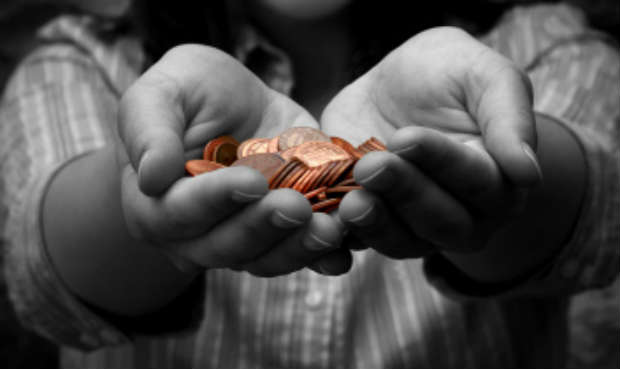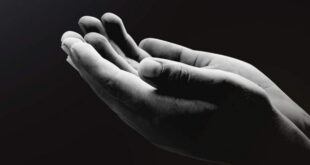Source: saudilife | By Aisha Al Hajjar, AMANI
TEACHING deen (religion) to our children is a huge obligation upon all parents. Generally, Muslim children begin to imitate the movements of salat (daily prayers) long before they are able to speak a word, let alone understand its significance or recite surats (verses of Quran), masha’Allah. In fact, as soon as they are able to crawl (9 or 10 months old), children of practicing Muslims will typically attempt to make sujoud (prostration) when they hear, “Allahu Akhbar (meaning Allah is the Greatest, the opening phrase of the daily salat),” or see the prayer rug put down.
As they begin to master speech (around 2) we can begin focus on teaching surats and the words of worship that should accompany their prayer movements. In this way, they learn the steps needed to fulfill this important pillar of Islam: performing their five daily salat, long before it is incumbent upon them, insha’Allah.
In fact, memorizing the five pillars of Islam is an important part of learning the religion for all Muslims, regardless if they are raised in the deen or revert to it at a later age. But we must do more than just teach the rote memorization of the list:
- Shahadah (the testimony in the belief in just one God, Allah)
- Salat (the five daily prayers)
- Zakat (obligatory charity)
- Sawm (fasting during Ramadan)
- Hajj (at least once in a lifetime pilgrimage to Makkah for religious worship)
It’s important that parents model these pillars in order for our children to begin to understand their meaning and how they apply to their daily lives, insha’Allah.
Shahadah is easily memorized but probably the most difficult to model. Since it is a belief rather than a physical act, parents must discuss with children that it is to Allah who we turn to for help and that it is HE alone that we worship. It will take time for children to truly be cognizant of this concept (school age or preteen) but the dialogue can begin from an early age, insha’Allah.
As we are in the blessed month of Ramadan, young children are observing adults fasting and they begin to sense the anticipation of breaking fast as Maghrib prayer time draws near. Many children begin to look forward to their first Ramadan fast and often times practice fasting before it becomes incumbent upon them. Some will begin by fasting half days or even starting full fasting at an early age, masha’Allah.
By modeling Ramadan fasting with joy, love, and fear of Allah, we are instilling yet another important pillar of Islam: sawm (fasting) during Ramadan. Whether or not parents observe, the fast coupled with how they convey their feelings and reasons for it will make a difference in the child’s perception of this purifying act of worship.
Just as children begin to explore the easy to observe physical aspects of salat and sawm at an early age, they also have the capacity to learn about another pillar: zakat (charity). This is less applicable to children since it refers to an obligatory payment of charity based on wealth retained over a specific time period. However, a related act of worship that can be shared by children is sadaqah (voluntary charity).
Narrated Abdullah ibn Mu’awiyah al-Ghadiri: AbuDawud said: I read in a document possessed by Abdullah ibn Salim at Hims: Abdullah ibn Mu’awiyah al-Ghadiri reported the Prophet (peace_be_upon_him) as saying: He who performs three things will have the taste of the faith. (They are:) One who worships Allah alone and one believes that there is no god but Allah; and one who pays the zakat on his property agreeably every year. One should not give an aged animal, nor one suffering from itch or ailing, and one most condemned, but one should give animals of medium quality, for Allah did not demand from you the best of your animals, nor did He command you to give the animals of worst quality.
Children can be encouraged to donate outgrown clothing, unused toys, and other belongings as soon as they are old enough to understand the concept of giving (around 4). They should be involved in selecting which items to give and should be taught to part with items of their own personal property that are still in good condition, rather than using charity as a way to dump broken or unwanted items. They can also give a portion of any cash they may have, whether it be money they have earned or were given as a gift.
Making pilgrimage during the month of Hajj is an act of worship that should be performed when the child is old enough to fully understand each step and its significance (puberty). However, younger children can begin to watch the event on television and if feasible, can even make the trip before they are old enough for it to “count.”
Obviously, the five pillars of Islam is just the tip of the iceberg. Muslim parents have many obligations towards their children with regards to teaching deen. But the most important thing to remember is that our children are mirrors of our actions. Whatever we model for them is typically what we will see reflected back, especially in the formative years.
Allah truly has trusted parents with a huge responsibility for their children. Surely this is a huge test. But with every hardship comes ease and few things are sweeter than the rewards of witnessing a 10-month-old making sujood or engaging in deep philosophical discussions about deen with a teenager, masha’Allah.
May Allah bless the parents and children of the Ummah and accept our fasts and good deeds during this blessed month of Ramadan.
 navedz.com a muslim's Quest for the truth
navedz.com a muslim's Quest for the truth










This is very important to teach children’s about these main basic of Islam. I think Every parents should teach their children’s at growing age